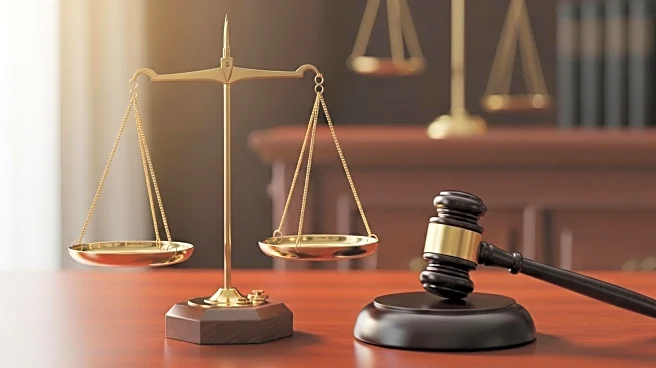What's Happening?
The Supreme Court has announced its intention to review a Hawaii law that imposes strict regulations on where individuals can carry firearms. This decision follows the Trump administration's urging, which argued that the law contravenes the Supreme Court's 2022 ruling affirming the right to carry firearms in public under the Second Amendment. The Hawaii law restricts firearms on private property unless explicitly permitted by the owner and bans them in public places such as beaches, parks, and establishments serving alcohol. Although a judge initially blocked the law following a challenge by a gun rights group and three individuals from Maui, the 9th U.S. Circuit Court of Appeals largely reversed this decision, allowing Hawaii to enforce the law.
Why It's Important?
The Supreme Court's decision to review the Hawaii gun law is significant as it could set a precedent affecting gun regulations across the United States. If overturned, it may lead to broader interpretations of the Second Amendment, potentially impacting public safety and gun control measures nationwide. The case highlights the ongoing debate between gun rights advocates and those prioritizing public safety, with potential implications for similar laws in other states. The outcome could influence future legislative efforts and judicial interpretations regarding the balance between individual rights and community safety.
What's Next?
The Supreme Court's review of the Hawaii law will likely prompt reactions from various stakeholders, including gun rights groups, public safety advocates, and state governments. Depending on the ruling, states may need to reassess their gun regulations to ensure compliance with federal standards. The decision could also influence upcoming legislative sessions, with lawmakers potentially introducing new bills to address the court's findings. Public discourse on gun rights and safety is expected to intensify as the case progresses.
Beyond the Headlines
The case raises broader questions about the interpretation of the Second Amendment and the role of state versus federal authority in regulating firearms. It may also spark discussions on the ethical implications of gun ownership and the societal impact of increased access to firearms. Long-term shifts in public policy and cultural attitudes towards gun control could emerge from the court's decision, influencing future legal and political landscapes.









